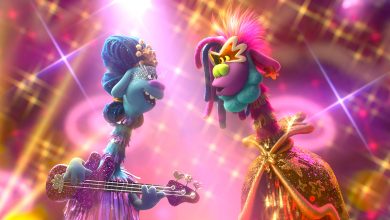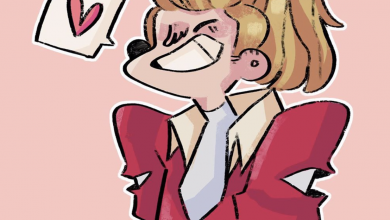Is Your Kid’s Favorite Superhero Sexist?

I spent most of Thursday (when I wasn’t working, of course) flipping back and forth between two breaking comic-related stories. The first was actually really exciting (to me) news that DC is working on a new superhero concept featuring and aimed at girl comic fans. My first reaction was something pretty akin to the muppetflail. The Moppet, who is almost 5, is just starting to really pay attention to the mostly Marvel universe stuff that her brother has amassed over the years. She has discovered Teen Titans Go! in the past month and is obsessed with Raven. If you ask her, she will tell you that she likes Raven and the green girl (Gamora) and Wonder Woman and Captain America and “the girls”. She represents the audience that will eat this new show up – girls who desperately want to see themselves reflected in the heroes that are everywhere these days. So, while there are certainly issues with this “superheroes for girls” proposal, which I’ll get to in a minute, this former Justice League fanatic is ultimately excited to see what comes out of this.
The second story burning up the geekosphere yesterday was the news of Captain America and Hawkeye calling Black Widow a “slut” and a “whore”. Now, that’s not what really happened, of course. In reality, Chris Evans and Jeremy Renner were winding down a press junket and the conversation turned to Black Widow’s relationships in the new Avengers movie and they made the unfortunate joke about the character’s promiscuity. Subsequently, they both apologized to varying degrees, as indicated in the link. Cue standard issue condesplaining and gaslighting about how irritated fans had their panties in a bunch about nothing, Black Widow is just a fictional character so no real woman was hurt, etc.
Both of these situations illustrate essentially the same concept – girls and women are still second class citizens in the comics industry and it is ultimately hurting our kids.
Of course adults understand that Renner and Evans were speaking as individuals and commenting on the fictional relationships of a fictional character. But kids don’t get that. Remember that poor kid who was so excited to meet Iron Man, and got Robert Downey Jr. instead? Have you ever watched the hordes of kids at amusement parks who think that they are really meeting their favorite character when they encounter the poor souls in badly ventilated plush suits? Kids don’t always get the distinction. So when the guy who plays Hawkeye says that the one female hero in the group is a slut, the kids who are the intended audience for the franchise don’t necessarily get that a) it’s a joke and b) that it’s Jeremy Renner saying it, not Hawkeye. They see guys they look up to casually calling women who are supposed to be respected and powerful these names like it’s no big deal, and it should be. One of the handful of women who my daughter actually identifies with was just reduced to a sexual object by her peers. Not cool.
In theory, DC’s new superhero girls line will be an inoculation against some of that. If there are more female characters who are actually keeping up with the guys as heroes not accessories, perhaps this casual sexism will be less common. That’s one of the big goals of representation – when characters meet on equal footing, it is harder to dismiss them. The concern is, though, that by specifically targeting female superheroes at girls, and by engaging companies like LEGO and Mattel that have been less than stellar in their representation of girls over the years, it seems likely that this line will continue to fall into the girls stories are for girls, boys stories are for everyone trap. And that bites. Both girls and boys need stories about both genders. There needs to be space for kids to play together and to experience the in-between – that area where everything isn’t about performing gender, and is just about having fun. It should not be acceptable to exclude female characters from marketing and merchandising because boys think girls are gross.
We learn how to relate to other people by learning more about how they see the world. Kids with aware media literate parents raising media literate kids know what’s what and make sure our kids get a better balance that the obvious, but we can’t count on everyone to be aware of and act on that knowledge. And we can’t necessarily expect today’s boys, who see very few women in comics and highly sexualized ones to boot, to grow up and not think it’s a joke to call a character a slut. In the meantime, there is hope – the immediate outcry led both Renner and Evans to apologize and Superhero Girls is still better than just superhero boys + 1. Maybe.






Great post! I’m optimistically looking forward to the day when the comics industry and its associated marketing can take two steps forward on gender issues without immediately taking at least one step back (women in refrigerators, that egregious Spider-woman alternate cover). Hiring more of the awesome women and genderqueer artists and writers out there would be a great start.
Thanks! I hate that feeling of being really excited about a possibility only to realize it has the possibility to just crash and burn.